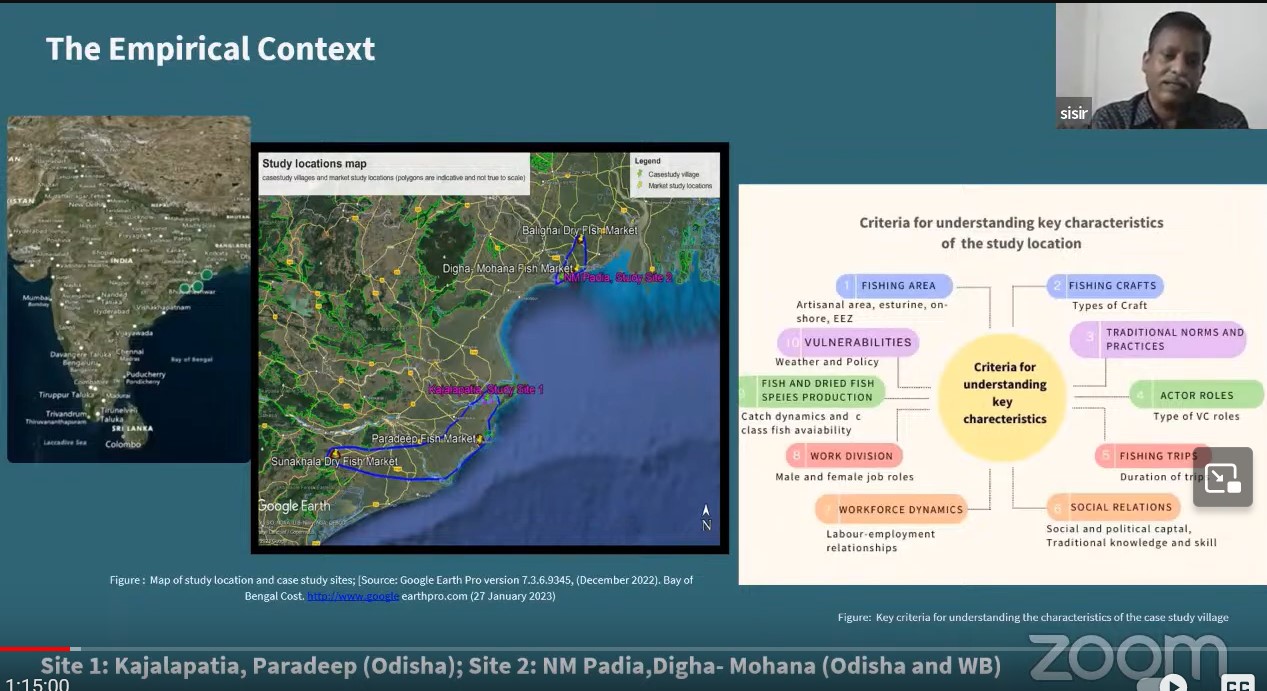 The production and trade of dried fish are important sources of livelihood and employment for poor people engaged in the dried fish value chain. Despite its importance, work on the dried fish value chain continues to focus on financial value creation and linear interactions among market actors that impede the recognition of human rights, justice, food security, and power across the entire value chain. Poor fishers and dried fish processors are placed at the extractive end of the value chain and hold low power in the market and remain vulnerable to changing social-ecological system dynamics.
The production and trade of dried fish are important sources of livelihood and employment for poor people engaged in the dried fish value chain. Despite its importance, work on the dried fish value chain continues to focus on financial value creation and linear interactions among market actors that impede the recognition of human rights, justice, food security, and power across the entire value chain. Poor fishers and dried fish processors are placed at the extractive end of the value chain and hold low power in the market and remain vulnerable to changing social-ecological system dynamics.
In the June webinar of the V2V research platform Sirir Pradhan presented a recent study on the dried fish value chain on the eastern Indian coast of the Bay of Bengal. He provided an empirical analysis of social-ecological system oriented dried fish value chain attributes which often involve important non-capitalist relationships. The key components of his lecture form part of his recently earned PhD from the University of Waterloo in Canada.
He started out with characterising the empirical context of the study in West Bengal and Odisha the Indian states with the second and fourth highest fish production.

Generally, however, production of wild marine fish is declining or at best steady against a strong increase in the number of mechanised and non-mechanised vessels, while aquaculture production is growing rapidly. Seven months fishing bans per year serve resource conservation and protection from harsh monsoon weather conditions.
Policy and programmatic attention is strongly oriented towards aquaculture and producing feed. But technological developments and demand for live and fresh fish also impact the market share of dried fish, already facing increased uncertainty from declining catch rates, climate change, village delocalisation as a result of sea level rise, space demand from tourism, expansion of solar energy parks and more.
It's not an easy equation to steer the fishers, processors and marketers of dried fish towards better social and economic conditions along this specific value chain and the wider structural changes taking hold. Among the responses in defence of their interests fishers demand tenure rights and other assurances to enable pathways into a viable future for themselves.
Click here to see the entire lecture and the Q&A session at the end.








